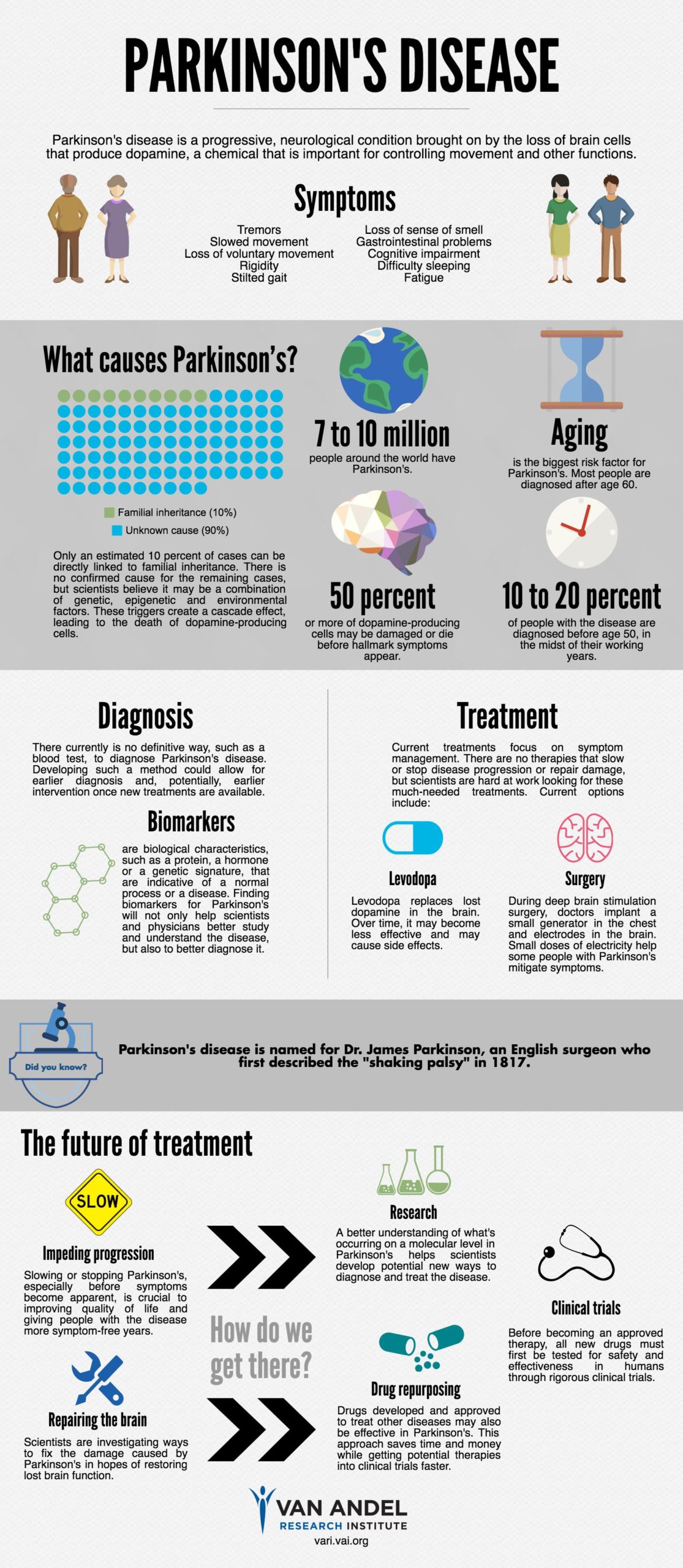Finding new treatments for Parkinson’s disease is at the heart of the Institute’s mission.
Between seven and 10 million people worldwide have the disease, making Parkinson’s the second most common neurodegenerative disease after Alzheimer’s. To help improve quality of life for people with Parkinson’s, researchers in the Institute’s Center for Neurodegenerative Science are investigating innovative ways to:
Slow or stop progression: There is no cure for Parkinson’s and current treatments only mitigate symptoms, ultimately becoming less effective over time. VARI and its international collaborators are committed to changing this reality, and developing new therapies that benefit patients and caregivers and lead to an improved quality of life.
Scientists in the Center are working to better understand what causes Parkinson’s, and identify new ways to slow or stop disease progression, allowing patients more symptom-free years.
Repair damage: Parkinson’s symptoms become progressively worse as the disease damages or kills crucial brain cells. The Center is investigating innovative approaches to reverse this damage and restore lost brain function.
Design better diagnostic and monitoring tools: Scientists in the Center are developing new ways to diagnose Parkinson’s earlier and more definitively, which will give doctors the opportunity to start therapies sooner and objectively monitor their effectiveness.
Learn how you can support the Institute’s Parkinson’s disease research here. For the 12th year in a row, we’re pleased to host the Winterfest Celebration, which benefits research in the Center for Neurodegenerative Science. Get the details here.
